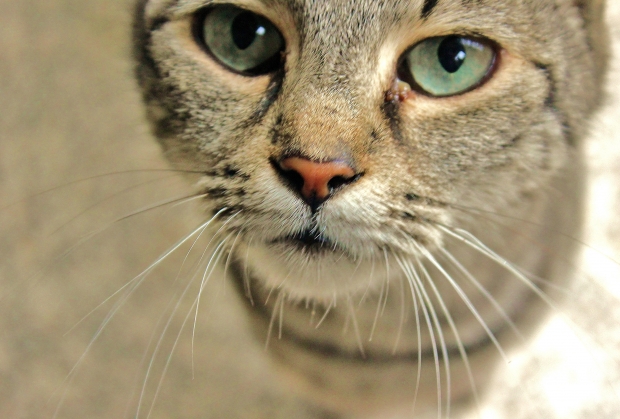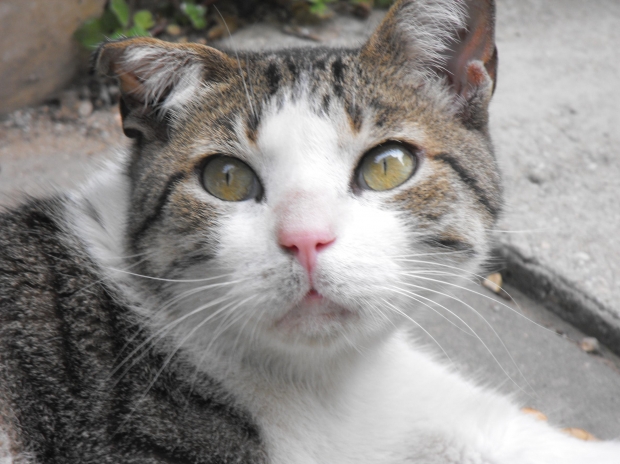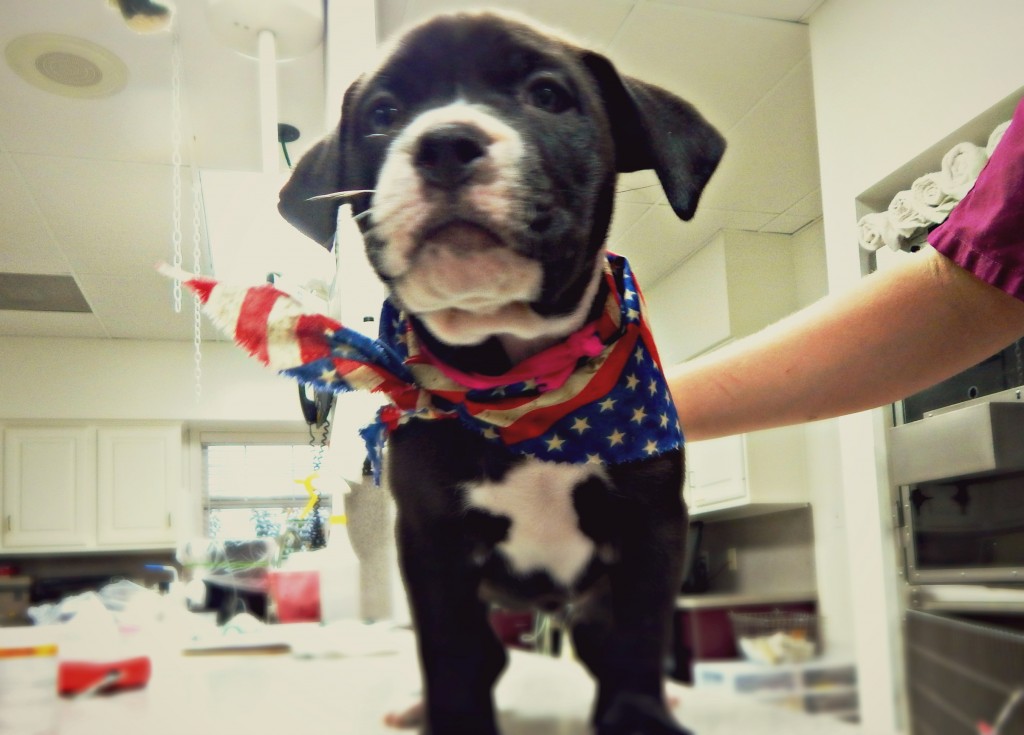 Hairless cats and dogs have not just been subjected to a bad experience with an overzealous groomer. They are born with no hair. Here are is everything you need to know about hairless pets, from history, breeds, health and care.
Hairless cats and dogs have not just been subjected to a bad experience with an overzealous groomer. They are born with no hair. Here are is everything you need to know about hairless pets, from history, breeds, health and care.
Tag: Veterinary Clinic
How to Keep Your Pets Safe on the Fourth of July
Continue reading How to Keep Your Pets Safe on the Fourth of July
How to Protect Your Dog’s Paws in the Summer
 Many dog owners take their furry friends on walks to enjoy the warm summer weather with them, but often times they forget about one important detail: hot pavement can and will burn a dog’s paws. While it can be tempting to bring your dog everywhere you go, it can cause serious harm to your beloved pet if you are not careful. Keep in mind that if asphalt and cement can get hot enough to cook an egg during the summer or it feels way too hot for you to leave your hands comfortably on the ground for at least 10 seconds, it can result in nasty burns on your dog’s paw pads, especially if your have a new puppy with tender young paws. Fortunately, there are a few ways you can protect your dog from getting burned this summer.
Many dog owners take their furry friends on walks to enjoy the warm summer weather with them, but often times they forget about one important detail: hot pavement can and will burn a dog’s paws. While it can be tempting to bring your dog everywhere you go, it can cause serious harm to your beloved pet if you are not careful. Keep in mind that if asphalt and cement can get hot enough to cook an egg during the summer or it feels way too hot for you to leave your hands comfortably on the ground for at least 10 seconds, it can result in nasty burns on your dog’s paw pads, especially if your have a new puppy with tender young paws. Fortunately, there are a few ways you can protect your dog from getting burned this summer.
Continue reading How to Protect Your Dog’s Paws in the Summer
Karsen Recently Graduated
 Karsen is a 13-month-old, guide dog in training. She has been seeing us for veterinary care since April 2015. All Pets Medical is sponsoring 100% of all Karsen’s medical care, including her laparoscopic spay. Karsen has been with her trainer, Laine in Aggie Guide-Dogs and Service-Dogs for a year now.
Karsen is a 13-month-old, guide dog in training. She has been seeing us for veterinary care since April 2015. All Pets Medical is sponsoring 100% of all Karsen’s medical care, including her laparoscopic spay. Karsen has been with her trainer, Laine in Aggie Guide-Dogs and Service-Dogs for a year now.
Feline Rabies Treatment and Management
 Feline Rabies is an inflammatory infection that specifically affects the gray matter of the cat’s brain and its central nervous system (CNS). The primary way the rabies virus is transmitted to cats in the United States is through a bite from a disease carrier: foxes, raccoons, skunks, and bats. Infectious virus particles are retained in a rabid animal’s salivary glands to better disseminate the virus through their saliva.
Feline Rabies is an inflammatory infection that specifically affects the gray matter of the cat’s brain and its central nervous system (CNS). The primary way the rabies virus is transmitted to cats in the United States is through a bite from a disease carrier: foxes, raccoons, skunks, and bats. Infectious virus particles are retained in a rabid animal’s salivary glands to better disseminate the virus through their saliva.
Once the virus enters the cat’s body, it replicates in the cells of the muscles and then spreads to the closest nerve fibers, including all peripheral, sensory and motor nerves, traveling from there to the CNS via fluid within the nerves. The virus can take up to a month to develop, but once the symptoms have begun, the virus progresses rapidly.
Intestinal Parasite Screenings for Cats
 Parasites often go unnoticed because they are “silent”. Intestinal parasites that are more common have adapted so well to their hosts (your cat), that they are living in balance and cause no observational health issues. This can always change though, because when the parasites become too numerous the pet’s health is affected. The best approach, because of their silent nature, is to try to keep pets completely free of them before the balance becomes disturbed.
Parasites often go unnoticed because they are “silent”. Intestinal parasites that are more common have adapted so well to their hosts (your cat), that they are living in balance and cause no observational health issues. This can always change though, because when the parasites become too numerous the pet’s health is affected. The best approach, because of their silent nature, is to try to keep pets completely free of them before the balance becomes disturbed.
The Chemistry Panel in Dogs and Cats
Have you ever wondered what the normal values for the blood chemistry elements for dogs and cats are? Well, “normal” is actually quite relative. Every veterinary diagnostic lab and “in clinic” laboratory equipment will have its own set of calibrated values that are considered “normal”. So as to be expected, the “normal values” will vary.
Leptospirosis Treatment and Management for Dogs
 Leptospirosis is a disease that can be transmitted to humans and a small amount of other animals. It is an infection of bacterial spirochetes, which dogs acquire when subspecies of the Leptospira interrogans penetrate the skin and spread through the body by way of the bloodstream. If untreated, the disease can be fatal. In this article, I am going to discuss the the treatment and management options for Leptospirosis in dogs.
Leptospirosis is a disease that can be transmitted to humans and a small amount of other animals. It is an infection of bacterial spirochetes, which dogs acquire when subspecies of the Leptospira interrogans penetrate the skin and spread through the body by way of the bloodstream. If untreated, the disease can be fatal. In this article, I am going to discuss the the treatment and management options for Leptospirosis in dogs.
Continue reading Leptospirosis Treatment and Management for Dogs
Canine Distemper Combination Vaccine
 The canine distemper vaccine is typically given in some variation of a combination vaccine that also protects your pet from several other serious diseases, such as parvovirus infection. Many of the diseases that are prevented by this combination vaccine have no effective treatment other than supportive care; however, vaccination can prevent these diseases or minimize the signs of illness. Other vaccines, such as the rabies and Bordetella vaccines, may be given in addition to the canine distemper/parvo combination vaccine.
The canine distemper vaccine is typically given in some variation of a combination vaccine that also protects your pet from several other serious diseases, such as parvovirus infection. Many of the diseases that are prevented by this combination vaccine have no effective treatment other than supportive care; however, vaccination can prevent these diseases or minimize the signs of illness. Other vaccines, such as the rabies and Bordetella vaccines, may be given in addition to the canine distemper/parvo combination vaccine.
H1N1 Influenza in Felines
The H1N1 variation of the flu virus, previously referred to as “swine flu”, is infectious to felines and in addition to individuals. Moreover, this virus is additionally known to contaminate dogs, pigs, and ferrets. In spite of the fact that the spread of this specific flu infection is no more thought to be a pandemic, it is still spreading around the world.




















